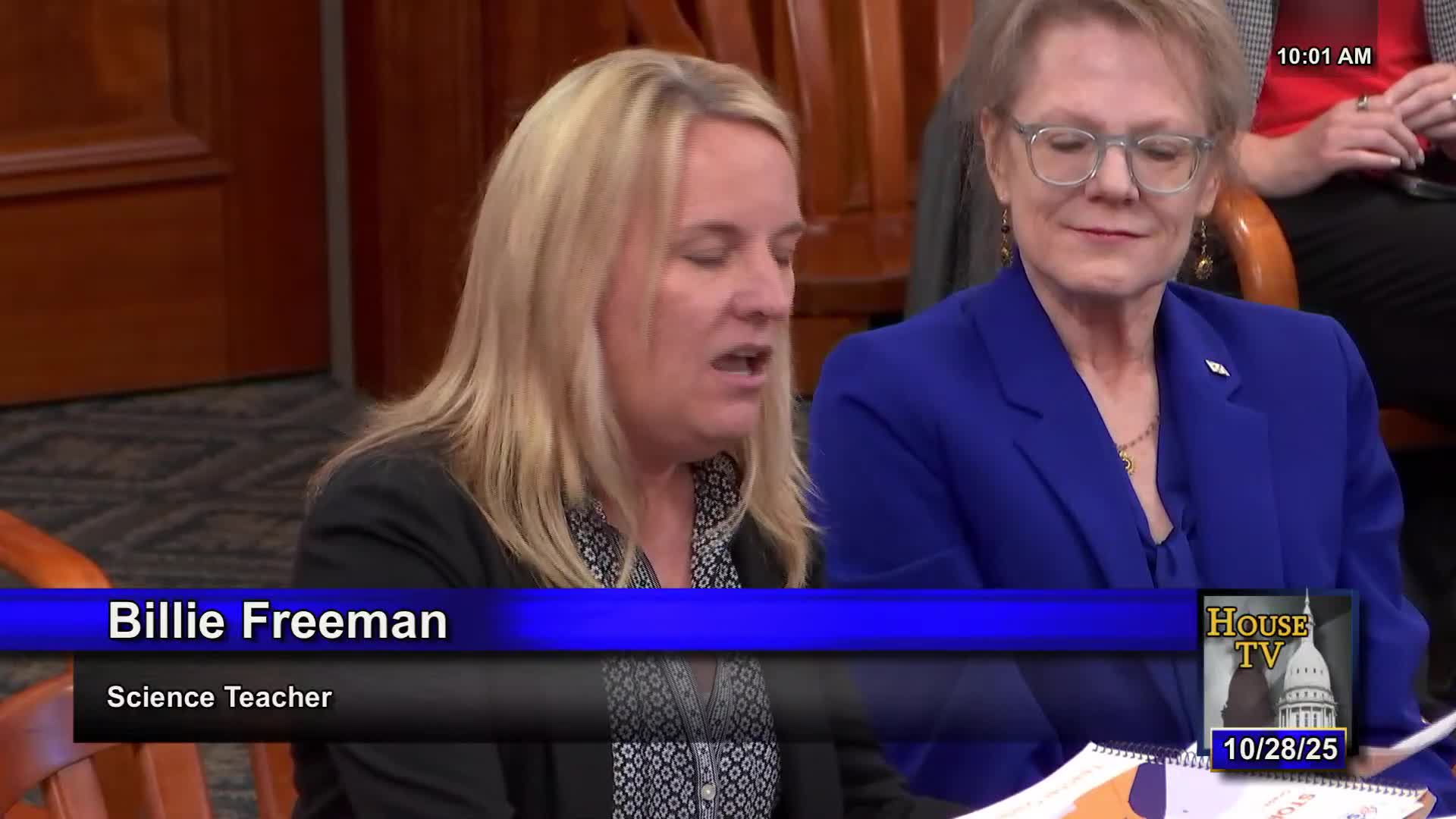Roadmap Learning presents classroom platform it says raised reading and science outcomes in pilot studies
October 29, 2025 | 2025 House Legislature MI, Michigan
This article was created by AI summarizing key points discussed. AI makes mistakes, so for full details and context, please refer to the video of the full meeting. Please report any errors so we can fix them. Report an error »

Representatives of Roadmap Learning presented the Roadmap platform and peer-reviewed research to the House appropriations subcommittee, describing a Michigan‑developed digital curriculum designed for elementary learners and citing studies the presenters say show measurable reading gains.
Gus Sameil, chief executive officer of Roadmap Learning, said the platform was developed by a consortium including the University of Michigan, Saginaw Valley State University and the University of North Texas and that Roadmap is currently in about 9,000 students across Michigan. “Our solution is a roadmap platform that specifically addresses the learning needs of the alpha generation,” Sameil said, referring to children who grow up immersed in screens.
Dr. Anteap Jaksa, a professor of teacher education at Saginaw Valley State University and a member of Roadmap’s research team, said a peer‑reviewed study published in the Journal of Interactive Learning Research showed students using Roadmap made significant reading gains; he said a two‑year study covering 2023–25 produced larger gains that are under review for publication.
Billy Freeland, a 32‑year teacher at Kent City Elementary, described classroom use: the district’s STEM program and Roadmap lessons helped Kent City move fifth‑grade science proficiency from low single digits pre‑program to 43.5 percent most recently, Freeland said. He described using Roadmap as a central planning and delivery tool that lets him push lessons to students, collect student work, and use digital creation tools such as an animation “flip book” to deepen student projects.
Committee members asked about teacher hesitation and suitability for early elementary students. Freeland said for youngest learners Roadmap serves as a lesson guide on the teacher’s interactive screen and that 1:1 Chromebook use increases around third grade; older elementary students work on individualized Roadmap lessons. Presenters said the platform is customizable for teachers and that research supports engagement and measurable growth when teachers adopt the approach.
Roadmap representatives requested state support for broader trials and for a one‑year free trial for interested schools to expand evidence in Michigan classrooms. No appropriation was adopted during the hearing.
Gus Sameil, chief executive officer of Roadmap Learning, said the platform was developed by a consortium including the University of Michigan, Saginaw Valley State University and the University of North Texas and that Roadmap is currently in about 9,000 students across Michigan. “Our solution is a roadmap platform that specifically addresses the learning needs of the alpha generation,” Sameil said, referring to children who grow up immersed in screens.
Dr. Anteap Jaksa, a professor of teacher education at Saginaw Valley State University and a member of Roadmap’s research team, said a peer‑reviewed study published in the Journal of Interactive Learning Research showed students using Roadmap made significant reading gains; he said a two‑year study covering 2023–25 produced larger gains that are under review for publication.
Billy Freeland, a 32‑year teacher at Kent City Elementary, described classroom use: the district’s STEM program and Roadmap lessons helped Kent City move fifth‑grade science proficiency from low single digits pre‑program to 43.5 percent most recently, Freeland said. He described using Roadmap as a central planning and delivery tool that lets him push lessons to students, collect student work, and use digital creation tools such as an animation “flip book” to deepen student projects.
Committee members asked about teacher hesitation and suitability for early elementary students. Freeland said for youngest learners Roadmap serves as a lesson guide on the teacher’s interactive screen and that 1:1 Chromebook use increases around third grade; older elementary students work on individualized Roadmap lessons. Presenters said the platform is customizable for teachers and that research supports engagement and measurable growth when teachers adopt the approach.
Roadmap representatives requested state support for broader trials and for a one‑year free trial for interested schools to expand evidence in Michigan classrooms. No appropriation was adopted during the hearing.
Don't Miss a Word: See the Full Meeting!
Go beyond summaries. Unlock every video, transcript, and key insight with a Founder Membership.
✓
Get instant access to full meeting videos
✓
Search and clip any phrase from complete transcripts
✓
Receive AI-powered summaries & custom alerts
✓
Enjoy lifetime, unrestricted access to government data
30-day money-back guarantee

